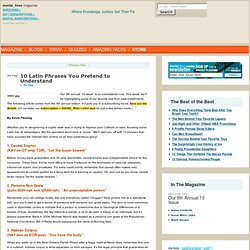

How 'OK' took over the world. 18 February 2011Last updated at 10:49 OK is everywhere, used every day It crops up in our speech dozens of times every day, although it apparently means little.

So how did the word "OK" conquer the world, asks Allan Metcalf. "OK" is one of the most frequently used and recognised words in the world. It is also one of the oddest expressions ever invented. It's odd-looking. We generally spell it OK - the spelling okay is relatively recent, and still relatively rare - and we pronounce it not "ock" but by sounding the names of the letters O and K.
Visually, OK pairs the completely round O with the completely straight lines of K. Continue reading the main story International OKs Native American Choctaw: Okeh - it is so Scottish: Och aye - oh yes Greek: Ola kala - all is right German: ohne Korrektur - without [need for] correction Finnish: Oikea - correct Mandinka: O ke - that's it Almost every language has an O vowel, a K consonant, and an A vowel. Fun With Words: Collective Nouns. 10 Latin Phrases You Pretend to Understand. Our 8th annual ‘10 Issue’ is on newsstands now.

This week, we’ll be highlighting some of our favorite lists from past installments. The following article comes from the 4th annual edition. If it puts you in a subscribing mood, here are the details. (Or consider our subscription + mental_floss t-shirt deal for just a few dollars more.) By Kevin Fleming Whether you’re deciphering a cryptic state seal or trying to impress your Catholic in-laws, knowing some Latin has its advantages. 1. Before money-back guarantees and 20-year warranties, caveat emptor was indispensable advice for the consumer. 2.
Remember your old college buddy, the one everybody called Chugger? These are the grammar, usage, and style errors seen most commonly in written materials. Table of Contents. Alan Kennedy's Color/Language Project - The Idiom List. Handy Latin Phrases. Learn Your Damn Homophones. Section I - Useful Phrases. Language Appears to Shape Our Implicit Preferences. Mental_floss Blog » Debunking Grammar Myths. This week we're joined by a special guest blogger. Patricia T. O'Conner, a former editor at The New York Times Book Review, is the author of the national best-seller Woe Is I: The Grammarphobe's Guide to Better English in Plain English, as well as other books about language. She is a regular monthly guest on public radio station WNYC in New York.
Learn more at her website, grammarphobia.com. Make her feel welcome! When I think about the rules of grammar I sometimes recall the story—and it's a true one—about a lecture given in the 1950s by an eminent British philosopher of language. Don't we all sometimes feel like that voice from the back of the room? English is not so much a human invention as it is a force of nature, one that endures and flourishes despite our best attempts to ruin it. So when you think about the rules of grammar, try to think like that guy in the back of the room, and never be afraid to challenge what seems silly or useless. 50 Problem Words and Phrases.
World Wide Words. May/June 2010 > Features > Cognitive Scientist Lera Boroditsky. Can language shape how we think? A Stanford researcher says yes, and her work speaks volumes about what makes people tick. By Joan O'C. Hamilton Lera Boroditsky's journey to answer one of psychology's most intriguing and fractious questions has been a curious one. She's spent hours showing Spanish-speakers videos of balloons popping, eggs cracking and paper ripping. "In English," she says, moving her hand toward the cup, "if I knock this cup off the table, even accidentally, you would likely say, 'She broke the cup.'" If one deliberately knocks the cup, there is a verb form to indicate as much.
The question is: Does the fact that one language tends to play the blame game while the other does not mean speakers of those languages think differently about what happened? As anyone who's studied a new language understands well, languages differ in myriad ways beyond simply having, as comedian Steve Martin once observed, "a different word for everything. " Consider space. Learn the phonetic alphabet. By stretch | Thursday, December 31, 2009 at 3:18 a.m.

UTC How often have you been on one end of a telephone conversation that went like this? List of constructed languages. This list of notable constructed languages is in alphabetical order, and divided into auxiliary, engineered, and artistic (including fictional) languages, and their respective subgenres.

Auxiliary languages[edit] International auxiliary languages are languages constructed to provide communication among all human beings, or a significant portion, without necessarily replacing native languages. Controlled languages[edit] Controlled languages are natural languages that have in some way been altered to make them simpler, easier to use, or more acceptable in certain circumstances, such as when a person does not speak the original language well. The following six projects are example of controlled English: Visual languages[edit] Visual languages use symbols or movements in place of the spoken word.
100 Most beautiful words in the English language* I Love You in many languages.